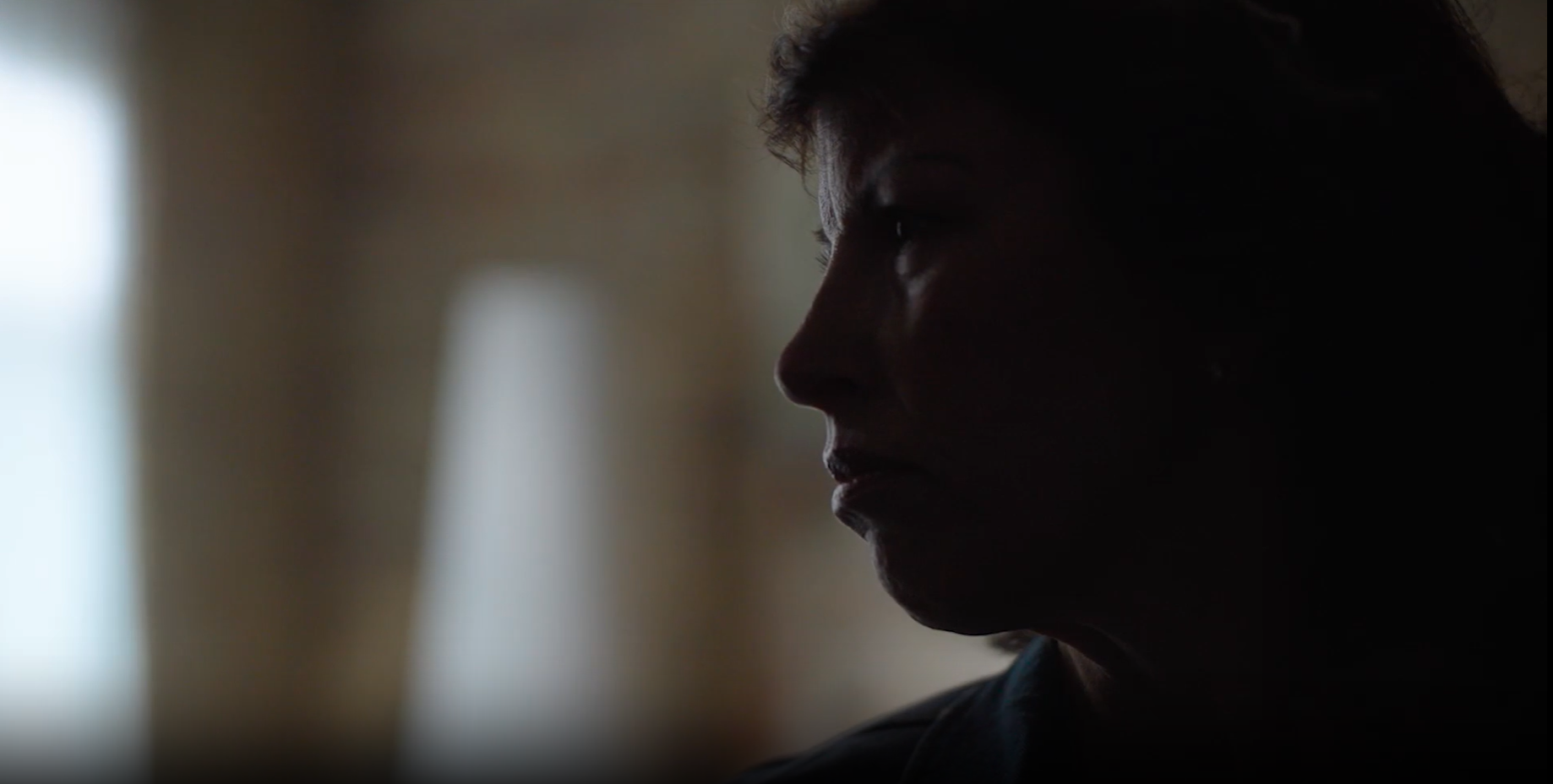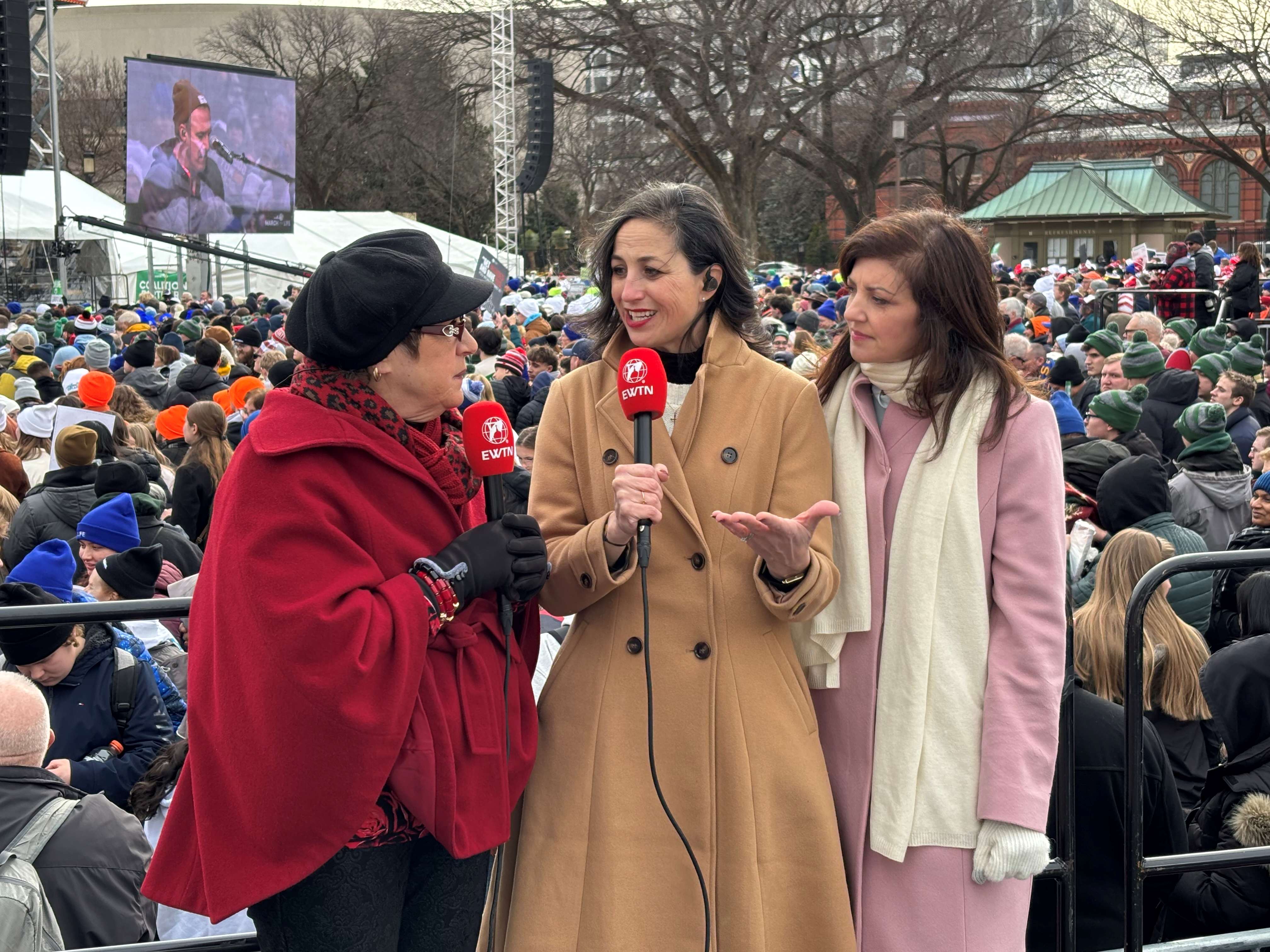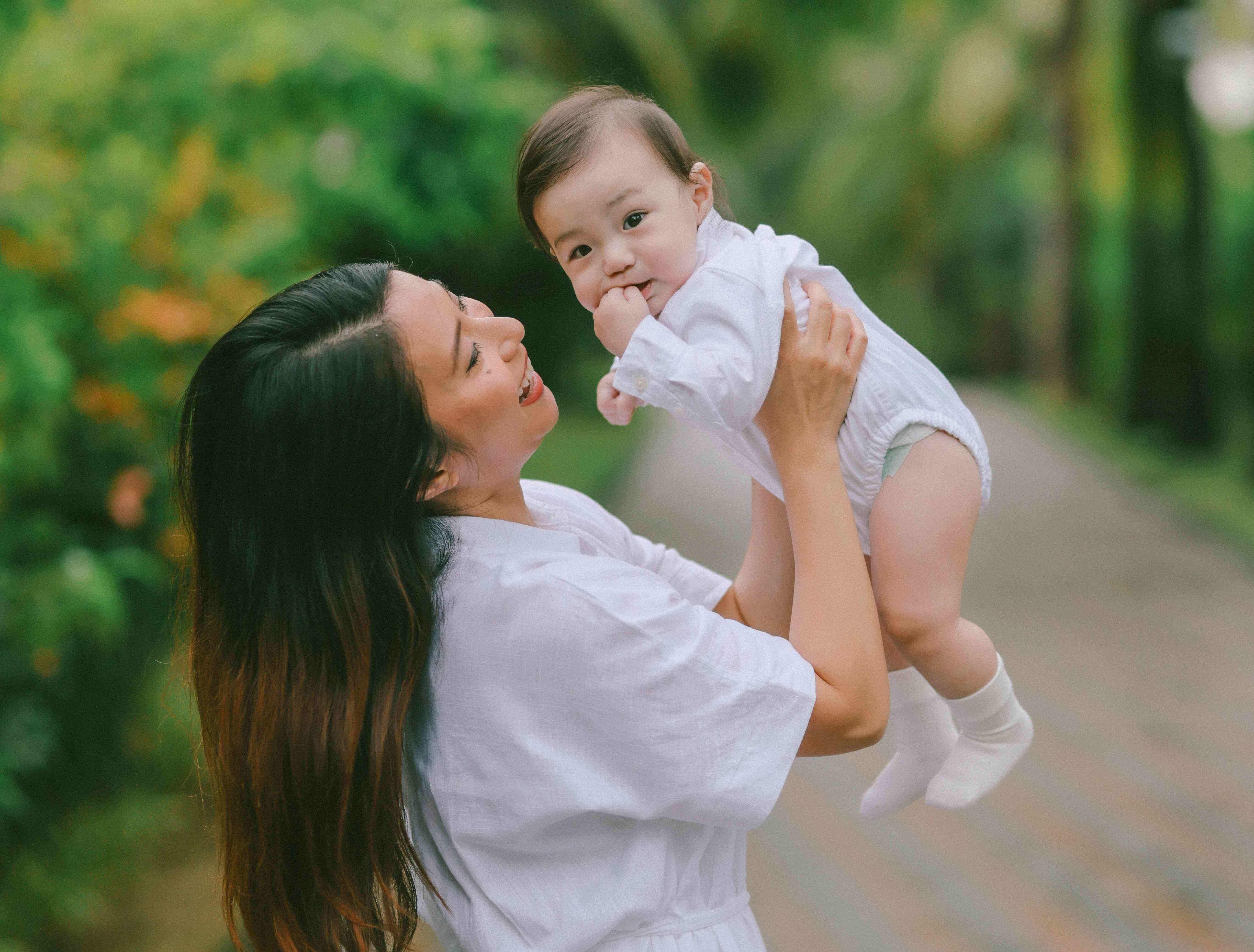“To me, it's just so simple. Life is created. It should be cherished" - Mary’s Shelter helps women and babies
(Washington Examiner) Kathleen Wilson swept crumbs off the floor of the soft yellow-painted lobby and returned toys to the playroom at the end of the day.
Children had been snacking and playing here at the office for Mary’s Shelter, which provides housing to pregnant women with nowhere else to go. Earlier in the day, Wilson gave away toys to siblings and sent a mother home with a Crock-Pot and gift cards to a big-box store.
The scene is one that has been repeated frequently over the 14 years the shelter has been open. In that time, more than 350 women have stayed at Mary’s Shelter, which describes itself as a "pro-life ministry" that abides by Catholic teaching. Wilson, who is the program's executive director, has been passionate about the anti-abortion cause for much of her life, saying it has made her a more devout Catholic.
“To me, it's just so simple," she said, her pale blue eyes animated and her red hair falling over her shoulders. "Life is created. It should be cherished."
[Click here to subscribe to Pregnancy Help News!]
That principle led her to found Mary's Shelter and to help open similar shelters in Maryland and other parts of Virginia. Such homes for pregnant women were better known during a different time in the United States, when getting pregnant outside of marriage was more stigmatized, even before the Supreme Court's 1973 Roe v. Wade decision that legalized abortion nationwide.
But there has been a new iteration of homes in the last 30 years set up by people within the anti-abortion movement who see them as a way to support women in difficult circumstances who choose adoption or motherhood, said Mary Peterson, housing specialist and facilitator for the National Maternity Home Coalition through Heartbeat International. Peterson has seen growing interest from organizations that want to open more homes, particularly among those who operate crisis pregnancy centers that work to dissuade women from having abortions.
Tweet This: There has been a new iteration of homes in the last 30 yrs .. to support women in difficult circumstances who choose adoption or motherhood
The shift is happening at a time when abortion advocates have become staunchly polarized along party lines and as they brace for the possibility that the Supreme Court will limit abortion rights. Mary's Shelter, and homes like it, are a reminder that, despite what is happening in the nation's capital and state legislatures, the anti-abortion movement comprises many different layers.
People are referred to Mary's Shelter from all over, whether by hospitals, police departments, crisis pregnancy centers, or neighbors. Women stay in the program rent-free for up to three years as they pay down debt, save money, and take classes, volunteer, or work to set themselves up for living independently once they leave.
Residents help each other with child care and attend classes on parenting, nutrition, and other subjects, explained Karin Cassidy, the organization's case manager. They must sign a contract saying they will abide by curfews, keep their rooms clean, and abstain from tobacco, sex, drugs, and alcohol.
Sticking to the agreement earns women “points,” which they can use to purchase all their basic needs, from clothes to cleaning supplies, in the Mary’s Shelter Boutique, a makeshift shop in the basement of one of the residences. The homes are within walking distance of downtown Fredericksburg, which makes it easy to run errands or take part in activities. The city has a population of nearly 30,000 people, and the downtown area is colonial-style architecture, with a multitude of restaurants, shops, and a historic district.
“Yes, we want to save the baby, but we really want to see women have an opportunity to grow and succeed,” Wilson said, adding that she has seen families reunited after staying in their residences. “There is such a trickle effect to these kinds of homes. It’s not just about that baby.”
Tweet This: “Yes, we want to save the baby, but we really want to see women have an opportunity to grow and succeed”
The National Maternity Home Coalition has tracked roughly 400 similar faith-based homes around the U.S., but their programs vary because most are the result of small, community efforts that get funding from churches, individual donors, and some businesses and aren't part of a centralized organization.
Wilson, who is in her 50s, didn't always know how to help women who faced an unplanned pregnancy. More than 14 years ago, while praying outside a Planned Parenthood in the District of Columbia, she asked a woman who was circling the parking lot and considering an abortion whether she could do anything to help her. The woman shot back, "What can you do to help me?"
Wilson didn’t know how to answer. “I froze,” she recalled.
“They had open arms”
But right around that time, she had been wrestling with a feeling that she should open maternity homes. The first pregnant woman she and two other women arranged housing for was facing a forced abortion if she returned to China because she and her husband already had three children. After the baby was born, the mother named him Wilson.
Now, Mary's Shelter houses as many as 17 women, not counting their children.
“They had open arms,” Anna, a U.S.-born 20-year-old who spent most of her life in Pakistan, said of Mary's Shelter staff. As she cradled her six-month-old son, Anna said that she found herself overwhelmed when her parents kicked her out because she had violated their Muslim faith by getting pregnant outside of marriage. When she arrived at Mary’s Shelter, she recalled the assurances they gave her: that things would be all right, that they would help her, and that she wouldn’t be alone.
Rachel, 26, a former resident who is getting her nursing degree, has had to temporarily take a break from waitressing at Cracker Barrel because she is healing from surgery and risks ripping bandages in her armpits when carrying trays. She has had 16 surgeries since the age of 14 because she has an incurable skin condition that causes painful lumps to form under the skin, necessitating the removal of infected tissue. Rachel credited Mary's Shelter with helping her persist in taking care of her two children.
“Thanks to Mary’s Shelter and being frugal, I have been able to save money to live off of for right now, so I don't have to worry about it,” she said.
Another former resident who dropped by Mary's Shelter, Keiana, 29, said she came to Mary’s Shelter in 2012 when she was six months pregnant and living out of her car with her two-and-a-half-year-old son.
“I couldn't do it anymore,” she said, beginning to cry. “I was mentally and emotionally drained.”
Without the help from Mary’s Shelter, Keiana said, dropping her voice to a whisper, she didn’t think she would have made it. She now works in property management, is married, and calls Wilson several times a week. She hopes someday to open a nonprofit institution like Mary’s Shelter, but for single fathers.
“You will forever be loved going into Mary's Shelter, even after you leave,” Keiana said. “You will not leave without tools or resources to make you a better woman.”
Mary's Shelter operates on $400,000 of expenses, not counting all the supplies and gift cards that are donated. It has a staff of eight and another seven regular volunteers, who help with handyman chores or tasks around the office, though dozens of members from the community frequently volunteer to pick up babysitting and meet other needs for residents.
“That’s what this is about. It’s about women empowering women”
During one unseasonably warm day in January, a teenage girl dropped in to help, and Sonia Spencer, the office administrator, put her to work sorting the linens upstairs. One woman dropped off diapers and newly purchased blankets. Another came in to fill out a financial donation form.
“I feel like they empower us as we empower them,” Spencer said of residents. “That’s what this is about. It’s about women empowering women.”
Wilson, mother of 12 — five biological, seven adopted — and grandmother of 13, has a lot of experience caring for children. Her family lived in Thailand for a time when her husband, a federal agent, was stationed there, and Wilson volunteered in a missionary-run orphanage. When her family returned to the U.S. and she was getting Mary's Shelter off the ground with two other women, Wilson leaned on her church, friends, and children for help.
Wilson talked about her work as she reached for a lunchtime vegetable wrap. She is a vegetarian, having refrained from eating meat since she was 13, a lifestyle choice that she connects, when asked about it later, to her convictions about life.
“I’m sure it’s all from the same sense in me to not want to hurt something that’s alive,” she said.
Wilson is acutely aware of the criticisms leveled at people, like her, who desperately want to see abortion become illegal in America: that they only care about stopping abortion but are less passionate about the broader societal issues, such as poverty or a lack of healthcare access, that cause many women to turn to abortion in the first place.
But Wilson said she believes everyone is called to help in different ways. Some people find their calling in advocating for abortion limits or counseling women out of having an abortion. Others pray or devote their lives to alleviating poverty. Her calling, she said, is with maternity homes.

Yet for all the hours put in by volunteers and all of Wilson's years of dedication, homes such as Mary's Shelter can only do so much to help residents, who still confront many obstacles after they leave. The difficulty women face hasn’t gone without Wilson's notice. She lamented that women are dropped from government food and medical assistance just as they start bringing in more income. She worries about women giving up, returning to shelters, or reuniting with men who are violent because they need financial help.
Some women have struggled to get on a stable financial footing after leaving the shelter. Having a car break down, for example, can put a mother behind on bills. The amount of money Keiana had to pay toward health insurance through her work, for herself and her family, was too high for her, and so she is going uninsured this year. For most jobs, needing to take a sick child to the hospital during the day doesn't come with sick pay.
“A lot of people that are pro-life don’t realize you have no resources for mothers after they have their babies,” said Star, 27, who had been in the Mary's Shelter program for two pregnancies and said it provided a much-needed, rare approach by the anti-abortion movement to help mothers.
One resident, Tara, 33, will probably need to stay with Mary's Shelter longer than she expected because she fell behind when her daughter, Azura, needed a liver transplant less than a year after she was born.
“The initial thing everyone sees when they come here is a roof over their head. … They do so much more," said Tara, a mother of four who fled a violent partner. "They have gone out of their way so many times."
But even though she's no longer spending her days in the hospital up in D.C. where her daughter was being treated, she still has fears about the future. Tara is going to school to get an associate’s degree in business and recently started a job at a warehouse. She worries about losing access to food stamps and government-funded Medicaid and about future housing costs.
“We want to put our money and our hearts where our mouth is”
Wilson doesn't have all the answers, but in her corner of the world, Mary's Shelter works with the community to do whatever it can to help women and their children, she said. Sometimes that means paying for a hotel stay for a few nights, or providing a laptop, crib, or car seat to someone who needs one. Other times that means picking up the tab for a car repair or electric bill, even for women who were never residents.
“We want to put our money and our hearts where our mouth is,” Wilson said. “We want to be there for women for whom [abortion is] not really the choice they want to make.”
Tweet This: Mary's Shelter works with the community to do whatever it can to help women and their children
Editor's note: This article was published in the Washington Examiner and is reprinted with permission. Heartbeat International manages Pregnancy Help News.






